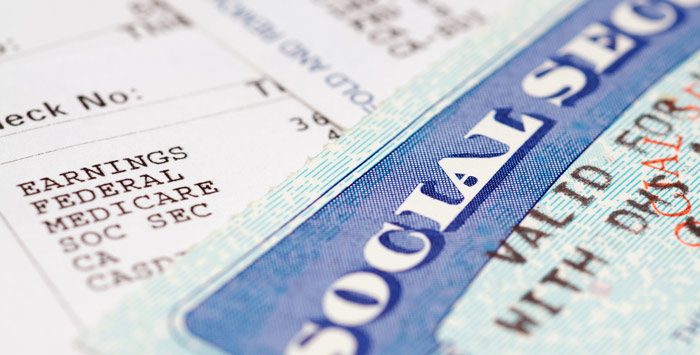Do I need to sign up for Medicare at 65 if I'm still working?
Medicare eligibility begins at age 65, and signing up on time can help you avoid premium surcharges. But if you’re working at 65, you get a bit more leeway.
Medicare age considerations
Medicare eligibility starts at age 65. Your initial window to enroll is the seven-month period that begins three months before the month of your 65th birthday and ends three months after it. Seniors are generally advised to sign up on time to avoid penalties that could prove quite costly over the course of retirement.
Specifically, if you fail to sign up for Medicare on time, you’ll risk a 10% surcharge on your Medicare Part B premiums for each year-long period you go without coverage upon being eligible. (Since Medicare Part A is usually free, a late enrollment penalty doesn’t apply for most people.) If you’re still working at age 65, however, a different set of rules applies.
Time to sign up for Medicare?
Find Medicare Advantage and Medicare supplement insurance plans in your area.
When to apply for Medicare
Many seniors are no longer employed at age 65, and thus rush to sign up for Medicare as soon as they’re able. But if you’re still working at 65, and you have coverage under a group health plan through an employer with 20 employees or more, then you don’t have to enroll in Medicare right now. But if your employer has less than 20 employees, you need to take Medicare Parts A and B, because that will be your primary insurance. If you don’t enroll, your employer plan may pay less – or nothing at all – for your care when it finds out.
That said, it often pays to enroll in Medicare Part A when you’re eligible, even if you have health coverage from an employer with 20 or more employees. It won’t cost you anything (as long as you or your spouse have paid Medicare taxes via employment for at least 10 years), and this way, Medicare can serve as your secondary insurance and potentially pick up the tab for anything your primary insurance — your employer’s health plan — doesn’t cover.
The only exception is if you’re contributing to a health savings account and wish to continue doing so. Medicare enrollees — including those who only enroll in Part A — are not allowed to contribute to an HSA, even if they continue to have coverage under an employer’s HSA-qualified high-deductible health plan.
Your Medicare special enrollment period
If you’re still working and covered under your employer’s health plan when you turn 65, you can delay your enrollment in Medicare (specifically in Medicare Part B, which allows you to avoid the Part B premium while you’re covered under your employer’s plan). In that case, you’ll get an eight-month special enrollment period to sign up for Medicare if and when you leave your job or your employer stops offering coverage. It will start the month after you separate from your employer, or the month after your group health coverage ends – whichever happens sooner.
Sign up during those eight months, and you won’t have to worry about premium surcharges for being late. And the eight-month special enrollment period is also available if you’re delaying Part B enrollment because your spouse is continuing to work and you’re covered under your spouse’s employer-sponsored plan.
But note that in either case, it has to be a current employer. If you’re covered under COBRA or a retiree plan, you won’t avoid the Part B late enrollment penalty when you eventually enroll, and you won’t have access to a special enrollment period to sign up for Part B — you’ll have to wait for the general enrollment period instead.
A note about the 20-employee rule: The eight-month special enrollment period and waiver of late enrollment penalties apply to anyone who is still working after age 65 and covered under their employer’s group health plan (or their spouse is still working and they’re covered under the spouse’s health plan). This is true regardless of how many employees the employer has.
The 20-employee threshold is separate, and determines whether or not the employer’s plan is primary or secondary. If the employer has fewer than 20 employees and you don’t sign up for Medicare, your employer’s plan might not pay for the care you need, as Medicare was supposed to be your primary coverage. But you’ll still have access to the eight-month special enrollment period and waiver of late enrollment penalties when you retire, regardless of the size of the employer.
Is your drug coverage creditable?
If you’re continuing to work and enrolled in your employer’s health plan, it likely includes prescription coverage. As long as that coverage is considered creditable (meaning it’s as good as Medicare Part D drug coverage), you can delay your enrollment in Medicare Part D without being subject to a late enrollment penalty if and when you do enroll in Part D coverage. Your plan should notify you each year about whether the drug coverage is creditable.
Note that for 2025, Part D out-of-pocket costs are capped at $2,000, under the Inflation Reduction Act. This benefit improvement could cause the drug coverage offered under some employer-sponsored plans (including HSA-qualified high-deductible plans) to no longer be considered creditable. If your employer’s plan will no longer be considered creditable drug coverage for 2025, you can enroll in a Part D plan during the Medicare open enrollment period, which runs from October 15 to December 7, 2024.
Run the numbers
Though you don’t need to enroll in Medicare at age 65 if you have active employee coverage through a qualified group health plan, doing so might make sense if that plan isn’t heavily subsidized by your employer. Figure out what you’re paying for group health coverage and what your benefits look like under that plan, and then compare it to what you’ll pay under Medicare, taking into account the cost of everything from premiums to coinsurance to deductibles to copays.
Maurie Backman has been writing professionally for well over a decade, and her coverage area runs the gamut from healthcare to personal finance to career advice. Much of her writing these days revolves around retirement and its various components and challenges, including healthcare, Medicare, Social Security, and money management.
Footnotes
Tags: enrollment, Medicare Part A, Medicare Part B, Medicare Part C, Medicare Part D










